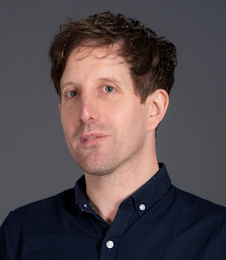Dr Kieran Durkin
Lecturer
Visit Dr Kieran Durkin's profile on the York Research Database to:
- See a full list of publications
- Browse activities and projects
- Explore connections, collaborators, related work and more
Profile
Biography
Kieran holds an MA (Hons.), MRes, and PhD from the University of Glasgow. He joined the department as an Associate Lecture in 2017. He was awarded a three-year Marie Skłodowska-Curie Global Fellowship in 2018, concerned with studying the Marxist Humanist Tradition. As part of the fellowship, he spent two years as a Visiting Fellow at the University of California, Santa Barbara, before returning to the University of York in 2021. Since 2022, he has worked as Lecturer in the department.
Teaching
Undergraduate
- Karl Marx
- Politics and the Novel
- State, Economy, and Society
- Introduction to Political Theory
- Politics of Gender
Postgraduate
-
Critical Theories of International Political Economy
Research
Overview
Kieran’s main research interests include Marxism, Marxist-humanism, critical theory, decolonial theory, and feminist theory. In particular, he is concerned with interrogating a critical and radical form of radical humanism that is allied with the Marxian, decolonial, and feminist movements. As a part of this, he is currently working on the notion of ‘human (anti)capital’ to try to more fully re-insert the human in the interstices of the critique of capital offered by Marx and later Marxists so as to capture the ways in which we reproduce but also transcend capital.
Available PhD research projects
Dr Kieran Durkin welcomes PhD applications in the following areas:
- Marxism
- Marxist Humanism
- Critical Theory
- Political and Social Theory
Publications
Selected publications
Monograph
Durkin, K. 2014. The Radical Humanism of Erich Fromm. Palgrave Macmillan.
* Shortlisted for the British Academy’s Philip Abrams Memorial Prize (2015)
Edited Collections
Peer Reviewed Articles
Selected Media
Durkin, K. 2021. 'Erich Fromm and the Mass Psychology of Fascism'. Jacobin.
Durkin, K. 2020. 'Erich Fromm and the Revolution of Hope. Jacobin.
‘Erich Fromm’s Radical Hope’, Jacobin Radio Podcast, November 2020 (available on Spotify, Apple Music, etc.).

Contact details
Dr Kieran Durkin
Department of Politics and International Relations
University of York
YORK
YO10 5DD

